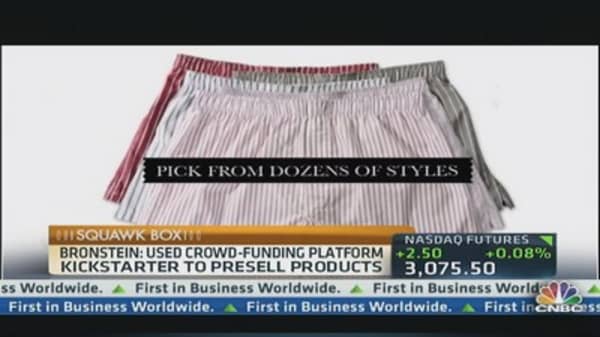Jake Bronstein wanted to see if he could produce high-quality textiles—specifically high-thread-count bedsheets—in the United States.
"I found out it's impossible," he said. "The machinery doesn't exist here, and neither do people with the skills to run it. I found that depressing."
But that disappointment didn't deter Bronstein from pursuing the idea of made-in-America threads.
He now believes that he has discovered a largely untapped vein of demand for premium, American-made underwear for men.
His company, Flint & Tinder, is on track to produce 2.5 million pairs this year, and for every 1,000 additional pairs he sells each month, another American job is created in one of 11 factories in California, Massachusetts, New York and South Carolina, Bronstein said. (Flint & Tinder itself employs nine.)
(Read more: Retailers take broad view of 'back-to-school' items)
Still, getting those factories on board wasn't easy, as he initially faced the same kind of resistance from them with the briefs—they were mostly making T-shirts—as he had with his sheets.
"They told me, 'We don't make underwear in this country,' " Bronstein said. And it's true, he added, noting that virtually all the brands on department store shelves are produced abroad and under license by only a couple of companies.
He managed to persuade them by arguing, "It's the same number of holes as a T-shirt. I just need an elastic waistband."





